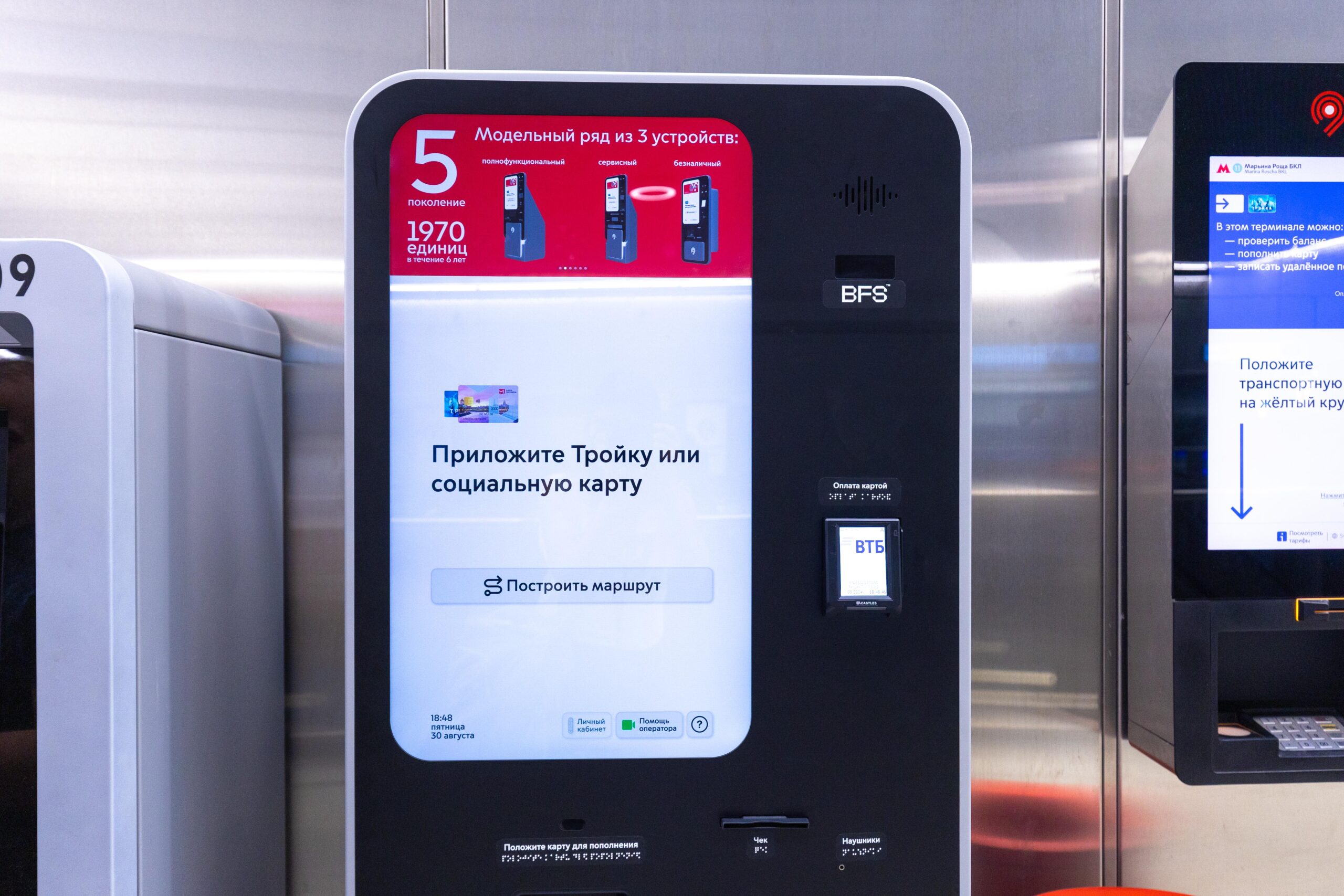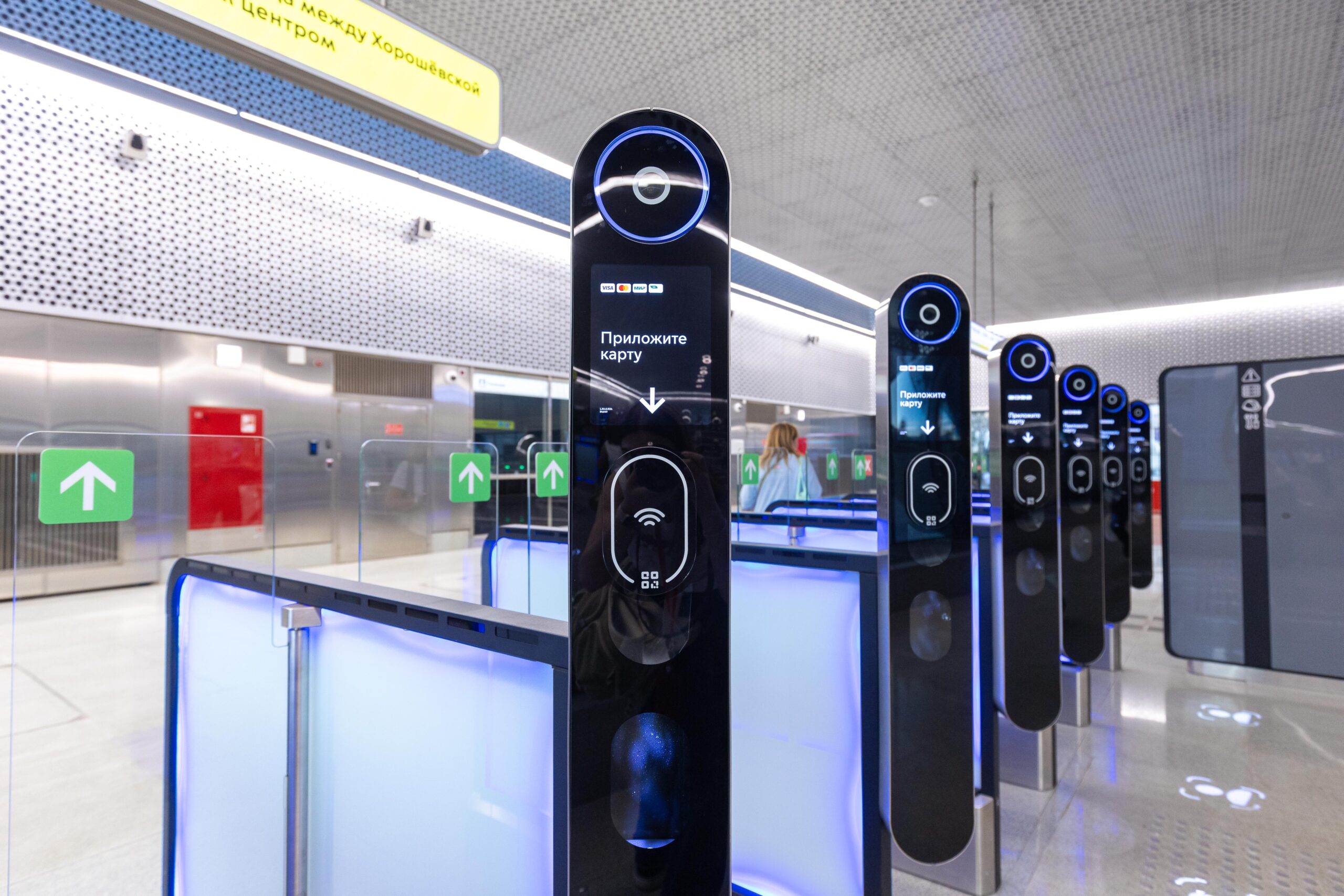Source: Moscow Metro
Moscow has introduced Russia’s first-ever digital stations into its transport system, merging cutting-edge technology with traditional passenger services to enhance comfort and convenience for travellers.

Leading this innovative initiative are two pilot locations: the Maryina Roscha station on the Big Circle Line of the metro, and Terminal No. 1 at the “Nizhegorodskaya” city railway station. These stations showcase various elements designed to shape the future of urban mobility.
Key Features of the Digital Stations:
1. Digital wayfinding:
- Real-time updates with animated icons, text blocks, and pop-up inserts.
- Touchscreen signboards providing local area maps, metro schemes, station accessibility status, and information on city ground transport.
- Interactive information stands that allow for frequent updates and additional announcements.
2. Technological innovations at Maryina Roscha:
- Live Communication kiosk:
Featuring a 3D chatbot named Alexandra, this kiosk combines the functionality of a chatbot and a human assistant. Passengers can receive assistance at any time and purchase metro souvenirs.
- Advanced turnstiles:
The new turnstile design increases capacity by 30% due to its compact build. Interactive lighting on the turnstiles indicates the payment status, and they accept various payment methods, including biometrics. A built-in lighting system guides passengers on where to stand for facial recognition payments.
- Upgraded ticket vending machines:
These machines feature bright and wide digital screens, operate faster, and offer additional functionalities such as route planning and temporarily freezing passes during absences.
- Smart ceiling lights:
These lights indicate the crowding levels of train carriages, allowing passengers to choose less crowded options by standing under green indicators.
- Projector system:
Eleven mini-projectors embedded in the escalator arch lighting display useful information, including weather forecasts from Yandex.Weather.
- Integrated train schedules:
Moreover, the digital stations integrate train schedules from the Moscow Central Circle (MCC) and Moscow Central Diameters (MCD) with Russian Railways’ route maps, enhancing the coherence of passenger information systems.

Future prospects
If these digital stations prove successful, the city plans to replace up to 30% of all metro wayfinding signs with digital versions by 2030.
Moscow Mayor Sergey Sobyanin has inaugurated the first digital transport facilities in Russia. We created them as part of the Moscow Transport Development Program until 2030, with a focus on innovations to enhance passenger comfort. Russian designers, planners, and manufacturers were involved in developing the solutions we have presented, — said Deputy Mayor for Transport Maksim Liksutov.
Passenger engagement and feedback:
To ensure continuous improvement, the digital systems at Maryina Roscha and Nizhegorodskaya stations are equipped with QR codes. Passengers can use these codes to leave feedback over the next six months. This feedback will be reviewed to determine the project’s scalability.
With this pioneering project, Moscow is set to redefine urban commuting by making it more efficient, ‘responsive, and user-friendly, harnessing the best of contemporary technological advancements.